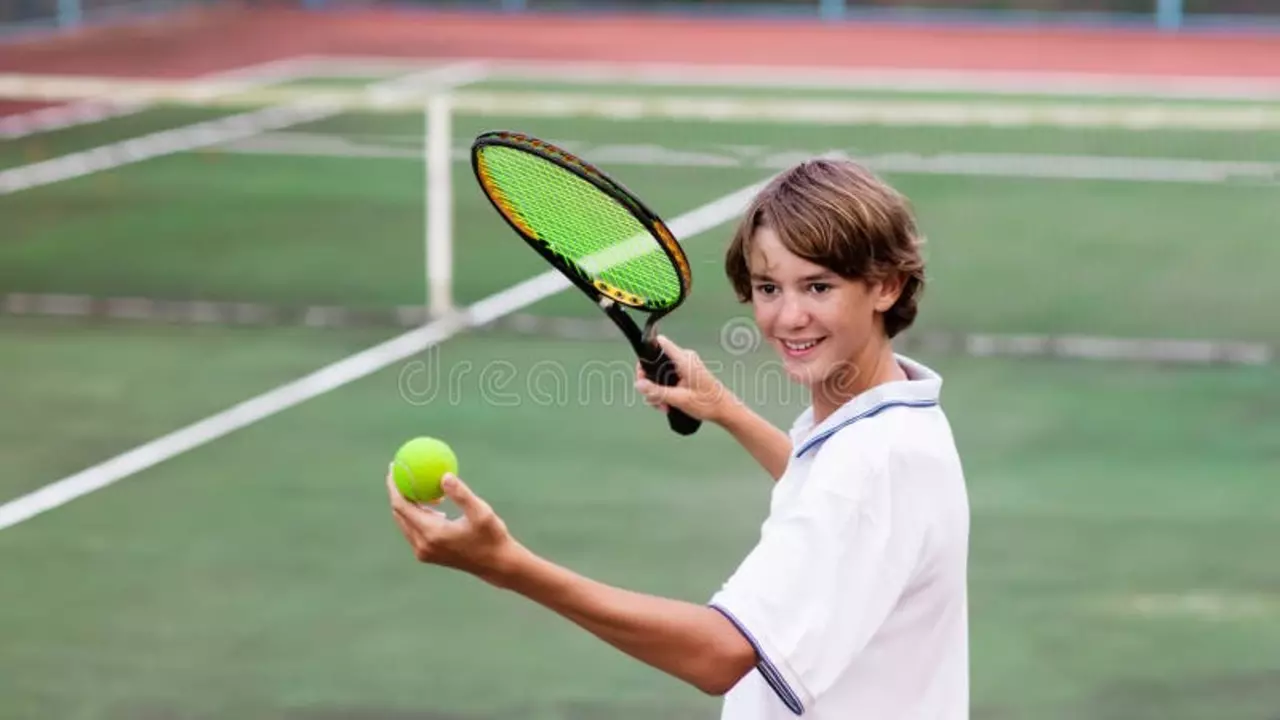How to stop my kid from throwing his racquet in a tennis match?

Jul, 23 2023
Understanding The Emotions Behind The Action
Before we look at practical ways to stop your kid from throwing their racquet during a tennis match, it's essential to understand the emotions that motivate this behavior. Kids, like adults, can get frustrated and angry during a game, especially when things aren't going their way. It's not uncommon for kids to have difficulty managing these intense emotions, leading to outbursts like racquet throwing. Although it's key to address this behavior, remember that your child is still learning how to handle their feelings. Their actions are not necessarily a reflection of their character.
Setting Expectations
Setting expectations is a good place to start when trying to curb undesirable behavior. Make it clear to your child what is acceptable and what isn't when it comes to their behavior during a match. Discuss the rules of the game, including the importance of respect for opponents, equipment, and the spirit of the game. Reiterate that while it's okay to be disappointed or frustrated, it's not acceptable to express these feelings through destructive behaviors like throwing a racquet.
Teaching Emotional Regulation
Throwing a racquet is often a result of a child not knowing how to handle their emotions. It's essential to teach your child about emotional regulation: the ability to manage and respond to an emotional experience in a suitable manner. Discuss different strategies with your child, like taking deep breaths, counting to ten, or taking a moment to collect themselves when they feel their frustration rising.
Emphasizing Sportsmanship
Sport is a great way to teach kids about sportsmanship: respect for one's opponents, acceptance of the rules, and graciousness in victory or defeat. Emphasize that being a good sport is more important than winning or losing. Encourage your child to shake hands with their opponent after a match, regardless of the outcome, and to always play fair.
Reinforcing Positive Behavior
One of the most effective ways to discourage negative behavior is by reinforcing positive behavior. Whenever your child shows good sportsmanship or handles their emotions well during a match, make sure to acknowledge and praise them. This positive reinforcement will encourage your child to repeat the good behavior in the future.
Creating Consequences for Negative Behavior
It's also important to establish and enforce consequences for negative behavior. If your child throws their racquet during a match, they should understand that their actions will have repercussions. These consequences could include missing out on the next game, losing their privilege to play tennis for a while, or apologizing to their opponent or coach.
Seeking Professional Help
If your child's racquet throwing continues despite your best efforts, it might be time to seek professional help. A child psychologist or sports psychologist can help your child learn to manage their emotions more effectively and develop better coping strategies. Remember, it's not a sign of failure to seek help; it's a step towards ensuring your child's emotional wellbeing.
Involving Coaches and Mentors
Coaches and mentors can play a significant role in shaping your child's behavior during tennis matches. Involve them in your efforts to stop your child from throwing their racquet. They can reinforce the lessons you're teaching at home and provide additional guidance during matches. Their authority and experience can be very influential for your child.
Leading by Example
Last but definitely not least, lead by example. Your child looks up to you and likely mimics your behavior. Show them how to handle frustration and disappointment in a healthy way. If they see you managing your emotions effectively, they're more likely to do the same. Remember, the goal is not to suppress your child's emotions, but to teach them healthier ways to express themselves.